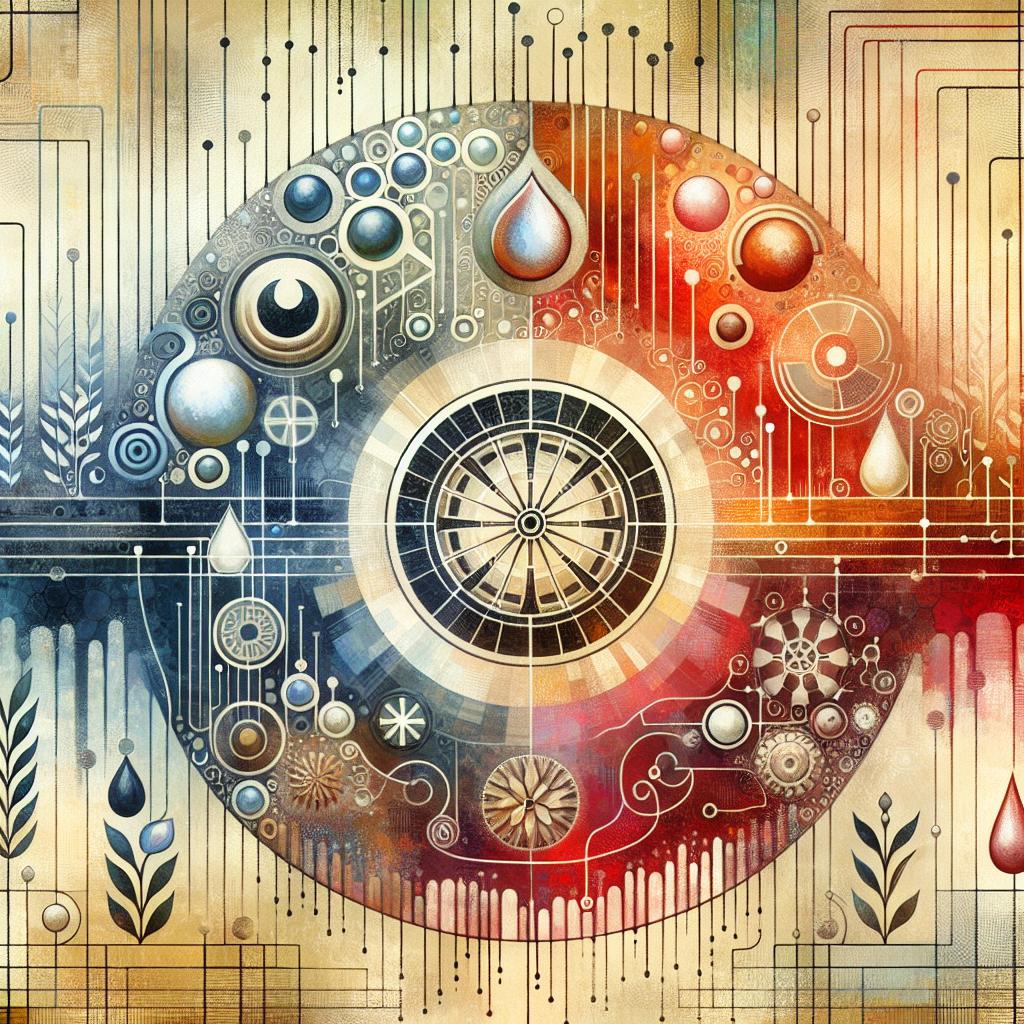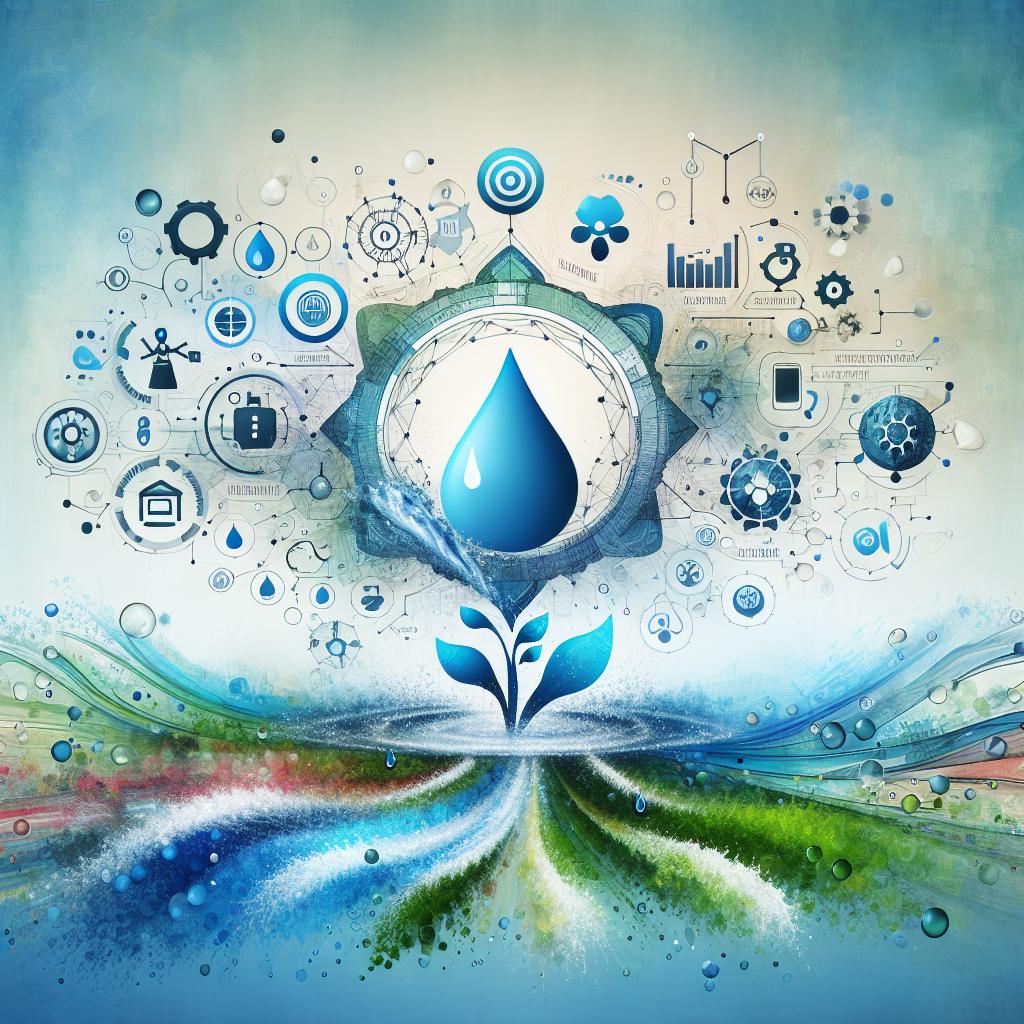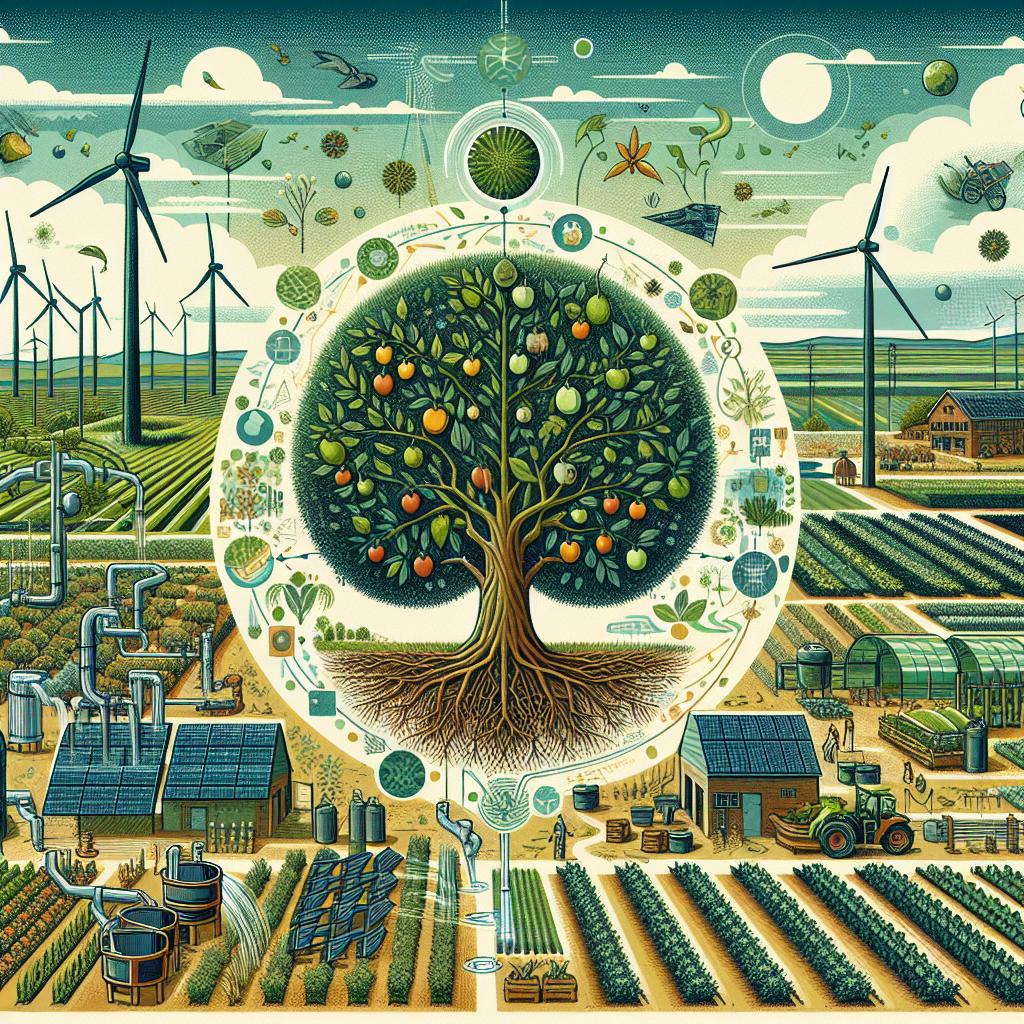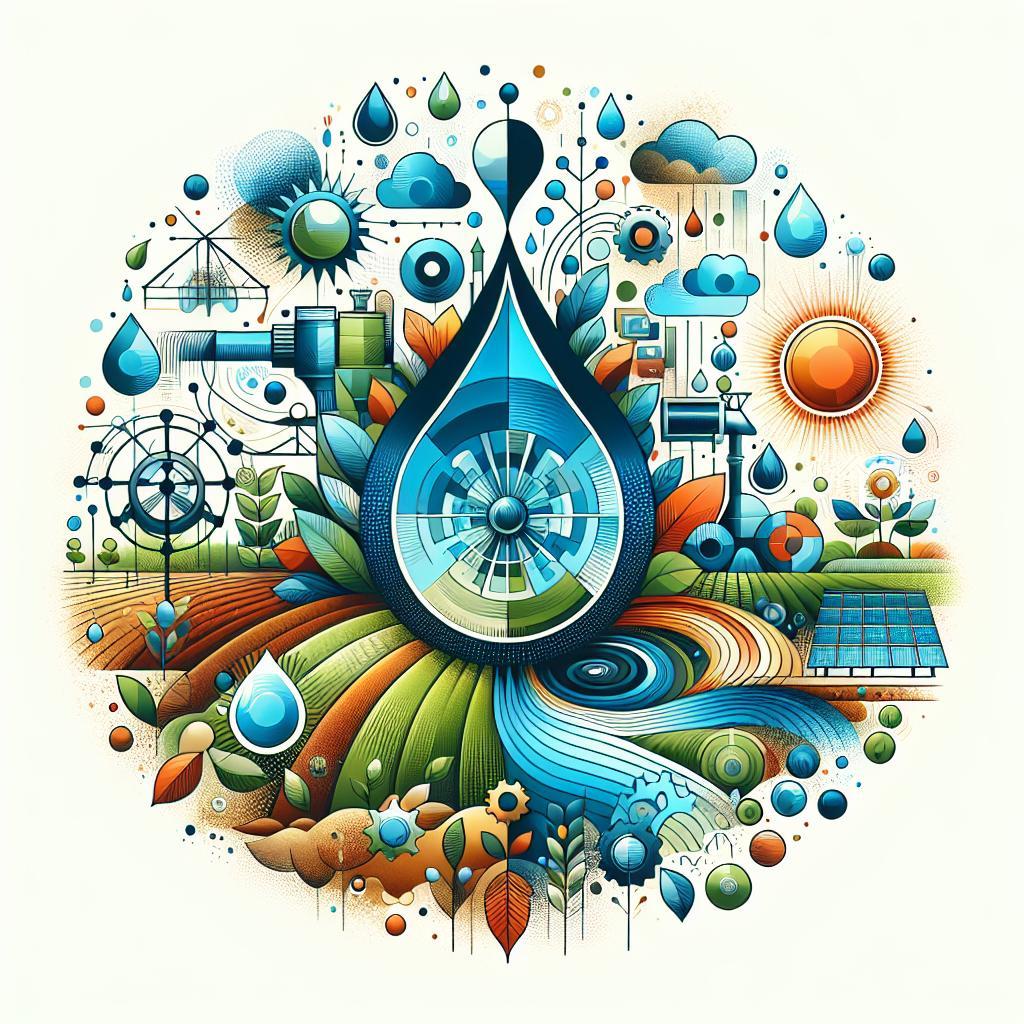This post may contain affiliate links which means I may receive a commission for purchases made through links. Learn more on my Private Policy page.
Title: The Role of irrigation Management in Farm Productivity
In the heart of every thriving farm lies a vital resource: water. Picture a lush green field, crops swaying gently in the breeze, nourished by just the right amount of moisture. Yet, behind this idyllic scene is a dance of calculation and care—an intricate process known as irrigation management. As farmers step into a world where every droplet counts, the art of balancing supply and demand becomes essential for turning potential into prosperity. In this article, we’ll dive into the captivating ways effective irrigation management can transform not only the landscape of a farm but also the livelihoods of those who cultivate it. From advanced technologies too conventional practices, join us on a journey to discover how thoughtful irrigation practices are reshaping agriculture and boosting farm productivity, ensuring that every farmer can reap the rewards of their hard work.So, grab yoru watering can and let’s explore the watering wonders of modern farming!
Understanding the Water Cycle for Thriving Crops
Understanding the dynamics of the water cycle is essential for optimizing irrigation management and, consequently, ensuring the health and productivity of crops.The water cycle plays a vital role in facilitating soil moisture replenishment, which is crucial for seed germination and plant growth. To thrive,crops rely not just on water availability but also on its quality and consistency. Effective irrigation practices can mimic the natural movements of water, enhancing the water absorbed by plants while reducing waste. Some key components affecting this process include:
- rainfall Patterns: knowing local rainfall can help farmers plan water needs accurately.
- Soil Type: Different soils retain water differently, influencing irrigation frequency and methods.
- Evapotranspiration Rates: Understanding how much water is lost through evaporation and plant transpiration helps in managing water resources efficiently.
To visualize the impact of irrigation on crop yields,consider the following table that showcases optimal water levels for various crop types:
| Crop Type | Optimal Water Level (inches/week) | Irrigation Methods |
|---|---|---|
| Corn | 1.5 – 2 | Drip, Sprinkler |
| Wheat | 1.0 – 1.5 | Surface, Center Pivot |
| Tomatoes | 2.0 – 2.5 | Drip, Subsurface |
This insightful data underscores the necessity of aligning irrigation management with the inherent water cycle, thus creating a harmonious relationship between water resources and agricultural productivity. By understanding these concepts, farmers can better navigate the challenges of climate variability while maximizing their crop yields.

Tailored Irrigation Techniques for Every Type of Crop
Every crop has its own unique needs, which makes customized irrigation techniques vital for optimal growth and productivity. By understanding the specific water requirements and growth stages of different crops, farmers can implement precise irrigation strategies that cater to each plant’s needs. For instance, deep-rooted crops such as corn may benefit from drip irrigation that delivers water deep into the soil, while shallow-rooted vegetables like lettuce thrive on more frequent, surface-level watering. Here are a few tailored techniques:
- Drip Irrigation: Best for fruit trees and row crops.
- Sprinkler Systems: Suitable for cereals and large fields.
- Subsurface Irrigation: perfect for root veggies like carrots and potatoes.
- Flood Irrigation: Ideal for rice paddies.
Moreover, using modern technology can enhance these tailored approaches. Integrating sensors and automation systems allows farmers to monitor soil moisture levels in real-time, resulting in more efficient water usage and minimized wastage. This not only conserves precious resources but also boosts the yield and quality of the produce. Below is a comparison table that highlights the benefits of various irrigation methods:
| Irrigation Method | Benefits |
|---|---|
| Drip Irrigation | Water efficiency, reduces weed growth |
| Sprinkler Systems | Versatile for varied crops, quick coverage |
| Subsurface Irrigation | Prevents evaporation, minimizes runoff |
| Flood Irrigation | Cost-effective, simple setup in specific crops |

Maximizing Efficiency: Smart Technologies in Irrigation Management
Innovative smart technologies have revolutionized irrigation management,making it easier than ever for farmers to optimize water usage and enhance crop yields. By utilizing automated systems backed by real-time data analytics, farms can reduce waste and improve the overall efficiency of irrigation practices. Noteworthy advancements include:
- Soil Moisture Sensors: These sensors provide precise data on soil saturation levels, enabling farmers to irrigate only when necessary.
- Whether Forecast Integration: By incorporating local weather data, farms can adjust their irrigation schedules to preemptively account for rainfall.
- Remote Monitoring: Farmers can oversee their irrigation systems from anywhere, allowing for prompt adjustments based on immediate needs.
The integration of these technologies not only conserves water but also leads to significant cost savings and increased productivity. A comparative analysis showcases the impact:
| Technology Used | Water Saved (%) | Yield Increase (%) |
|---|---|---|
| Soil Sensors | 30 | 15 |
| Automated Irrigation | 40 | 20 |
| Weather Integration | 25 | 10 |

Building Resilient Farm Systems through Sustainable Practices
Effective irrigation management is the cornerstone of sustainable agriculture.By optimizing water use, farmers can considerably improve crop yields while conserving precious resources. Implementing strategies such as drip irrigation and rainwater harvesting helps to minimize waste and maintain soil health. Key practices that contribute to efficient irrigation management include:
- Soil moisture monitoring – Ensuring that plants receive the right amount of water.
- Scheduling – Adjusting watering times based on weather patterns and crop needs.
- Mechanical systems audit – Regularly checking systems for leaks and inefficiencies to maintain optimal performance.
A well-structured irrigation plan boosts not just productivity but also resilience against climate fluctuations.As droughts become more frequent, diversifying water sources can further support farm sustainability. Such as, integrating water management with soil conservation techniques not only reduces erosion but also improves water retention capabilities. A brief overview of the benefits of smart irrigation practices is illustrated in the table below:
| Benefit | Description |
|---|---|
| Water Conservation | Reduces overall water usage without sacrificing crop health. |
| Increased Yield | Helps crops thrive, leading to higher outputs and quality. |
| Cost Efficiency | Lowers operational costs by reducing water bills and labor. |
In Conclusion
as we lightly roll up our sleeves and walk through the sun-soaked fields of possibility, it’s clear that effective irrigation management stands as a cornerstone of farm productivity. Just as a gardener knows the value of nurturing each plant in its unique way, farmers who harness the art and science of irrigation can cultivate thriving ecosystems that yield not just bushels of bounty but also sustainability for future generations.By embracing innovative techniques and investing in thoughtful strategies, we can ensure that every drop of water is maximized, every crop is nourished, and every farmer is empowered. So, whether you’re a seasoned tiller of the land or just starting to sow your seeds, remember that smart irrigation management is more than just a practice—it’s a partnership with nature, an ode to our resources, and a pledge to protect the earth we all share.
Let’s raise our glasses to the water warriors in fields, the agricultural innovators, and the future of farming that relies on thoughtful irrigation practices. May we continue to cultivate not only our crops but also knowledge, community, and a sustainable future for all. Happy farming!
This post may contain affiliate links which means I may receive a commission for purchases made through links. Learn more on my Private Policy page.

